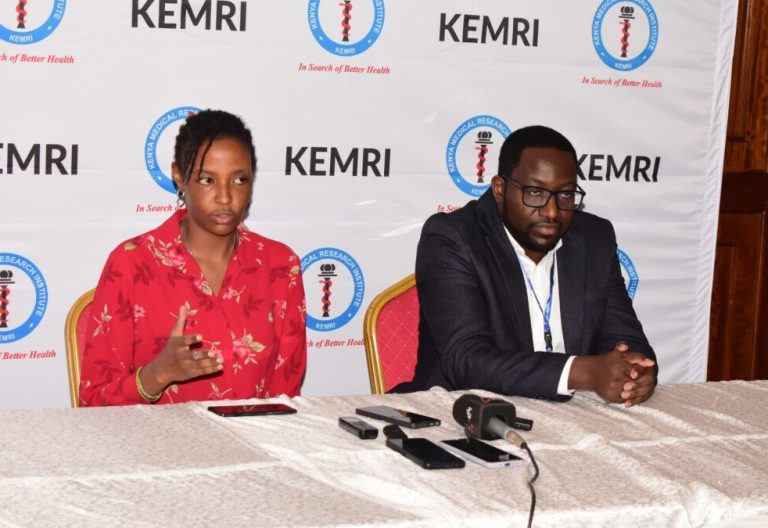Specialists call for release of attempted suicide suspects

Mental health specialists have called on justice actors to immediately release all individuals currently in custody for attempted suicide, following a landmark High Court ruling that decriminalized the act in Kenya.
Speaking in Nairobi during the 15th Kenya Medical Research Institute (KEMRI) Annual Scientific and Health Conference, Dr Boniface Chitayi, a consultant psychiatrist and lecturer at Kenyatta University Medical School, urged authorities to ensure that all affected individuals, whether already processed or still undergoing legal procedures, are freed to seek medical attention and mental health support.
“We commend the ruling because it has marked a significant step in improving mental health care in the country. The ruling also corrects historical injustices for so many people. What we are now asking for is to see all survivors freed so that they can receive the treatment and support they need,” said Dr Chitayi.
Remove criminalisation
The psychiatrist further urged the Kenyan Parliament to repeal Section 226 of the Penal Code to formally remove the criminalization of attempted suicide from the country’s legal framework. He stressed the importance of reviewing the entire Penal Code to eliminate all sections that criminalize symptoms associated with mental health conditions. Furthermore, he called for the full implementation of the National Suicide Prevention Strategy (2021-2026) to enhance mental health services and suicide prevention efforts across the country.
For decades, individuals who attempted suicide in Kenya faced prosecution under Section 226 of the Penal Code, which classified the act as a misdemeanor punishable by imprisonment, fines, or both.
However, on January 9, the High Court declared Section 226 unconstitutional, ruling that it violated fundamental rights, including human dignity, equality, and access to the highest attainable standard of health, as enshrined in Articles 27, 28, and 43 of the Kenyan Constitution. The court acknowledged that suicidal behavior is often a manifestation of underlying mental health conditions requiring treatment rather than criminal punishment.
“Scientific studies have consistently shown that suicidal behaviour is often driven by mental illness. Anyone who attempts suicide should receive treatment and care, not punishment,” Dr Chitayi explained.
Suicide cases
He also urged journalists to adopt responsible reporting practices when covering suicide cases to help reduce copycat incidents. He cautioned that sensationalized reporting or providing explicit details about suicide methods can inadvertently lead others to replicate similar actions.
“When journalists reveal too much information about how a suicide occurred, they risk encouraging others to imitate the method,” he warned.
Christine Njambi, a senior mental health scientist at KEMRI, revealed that currently, the country lacks comprehensive data on the number of Kenyans who have ever attempted suicide. This is because most cases of attempted suicide go unreported or are not formally recorded. This is why KEMRI is set to conduct a nationwide survey aimed at collecting accurate statistics on suicide cases, including both fatalities and non-fatal attempts.
This data will inform future mental health policies, facilitate targeted interventions, and ensure that individuals struggling with mental health challenges receive the support they need.
“There are global estimates on suicide cases, but locally, we lack specific data. Without accurate data, we will be fighting an invisible battle. This survey will help us understand the true burden of suicide in Kenya and ensure that no one suffering in silence is left behind,” said Njambi.













